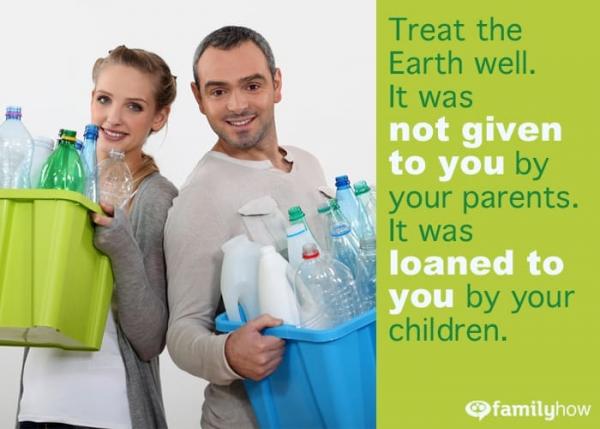
There is growing social pressure on all of us to do our part for the environment, but some of the pressure we feel conflicts with the economic pressure on our families. Here are some ideas that are both ecologically and economically friendly.
-
Reuse and Repurpose. Younger children should certainly have some new things, but hand-me-downs from older siblings is a veritable tradition that families have used for generations. Before throwing anything in the trash or the recycle bin, consider if there isn't another immediate use for that item-especially one that would allow you to avoid making a purchase, but don't save junk! That's a recipe for hoarding!
-
Donate your used stuff to a thrift store. This accomplishes two things. 1) It prevents adding to the landfills. 2) Saves you from paying fees for an offsite storage facility. If you're honest with yourself, you'll find a lot of stuff in your home that you never ever use, but don't blow it by filling the space with new junk-just enjoy the openness created by having less clutter, fewer shirts in the drawers and toys that have all been outgrown.
-
Sell your valuable old stuff on eBay or Craigslist (use the former for things that you can easily ship and the latter for things that would be expensive or difficult to ship).
-
Walk to the grocery store. Not only will it save on gas and protect the environment, but you'll find you can't carry nearly as much, forcing you to make wise decisions in the store. If you have a large family or live beyond walking distance from the store, try organizing your errands carefully to cut down on the miles you drive.
-
Buy groceries in bulk. Buying in bulk not only tends to cut the cost per unit down, but often results in less packaging per unit, reducing the landfill pressure. A big jar of peanut butter, for instance, may cost half as much per ounce as the small jar. In the landfill or in the recycling process, the one big jar will end up doing less damage than the set of smaller jars required for an equivalent amount of peanut butter.
-
Use Skype or a Hangout on Google+ to see far away friends and family instead of going to see them. (You can do this for business, too.) The energy saved by avoiding travel can be huge!
-
Take a train instead of an airplane. It may not always be cheaper, and in the U.S., it is rarely faster, but a train ride could be a real adventure and is much greener than air travel.
There are lots more ways to be green and cheap. What do you suggest?

